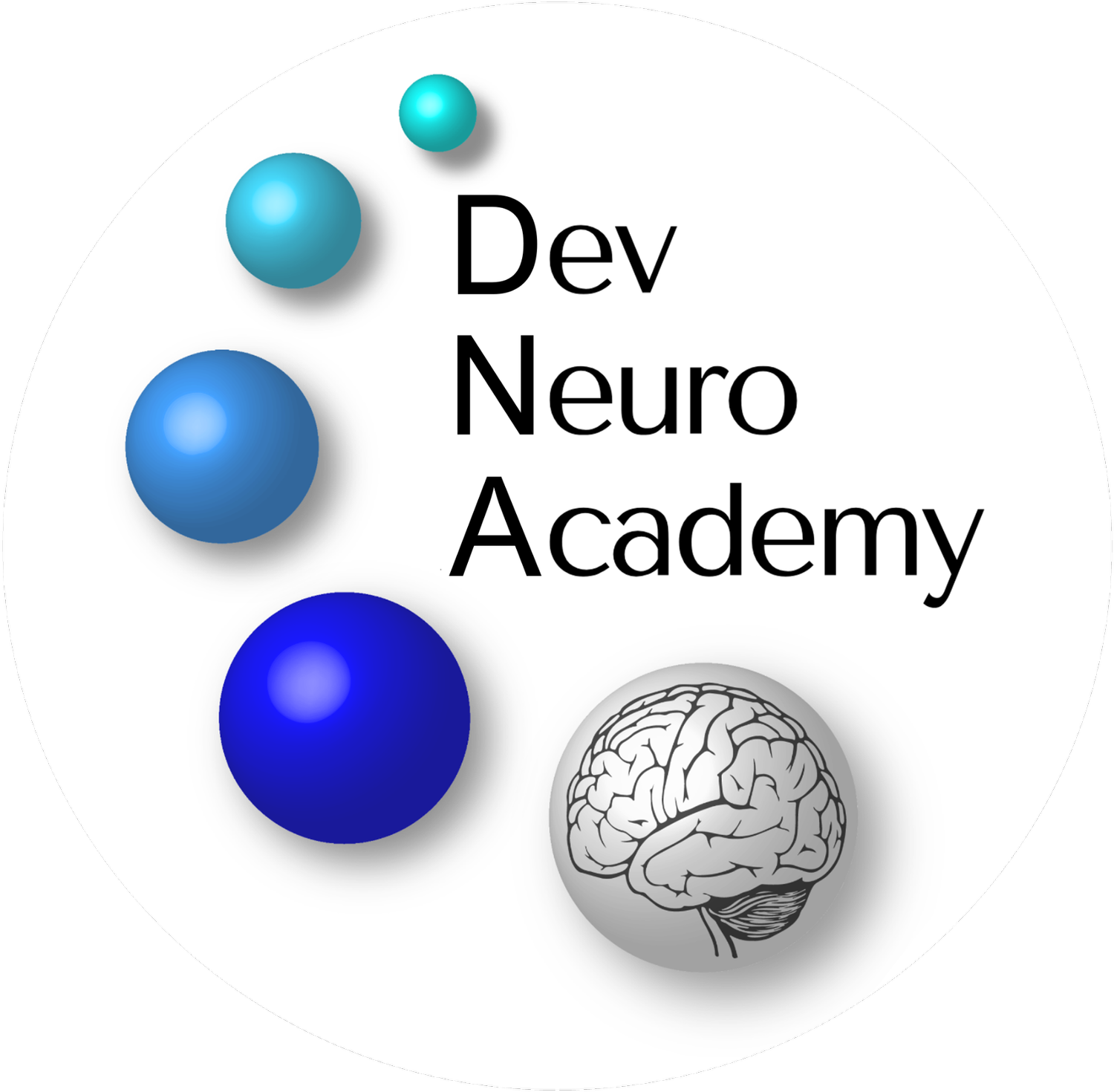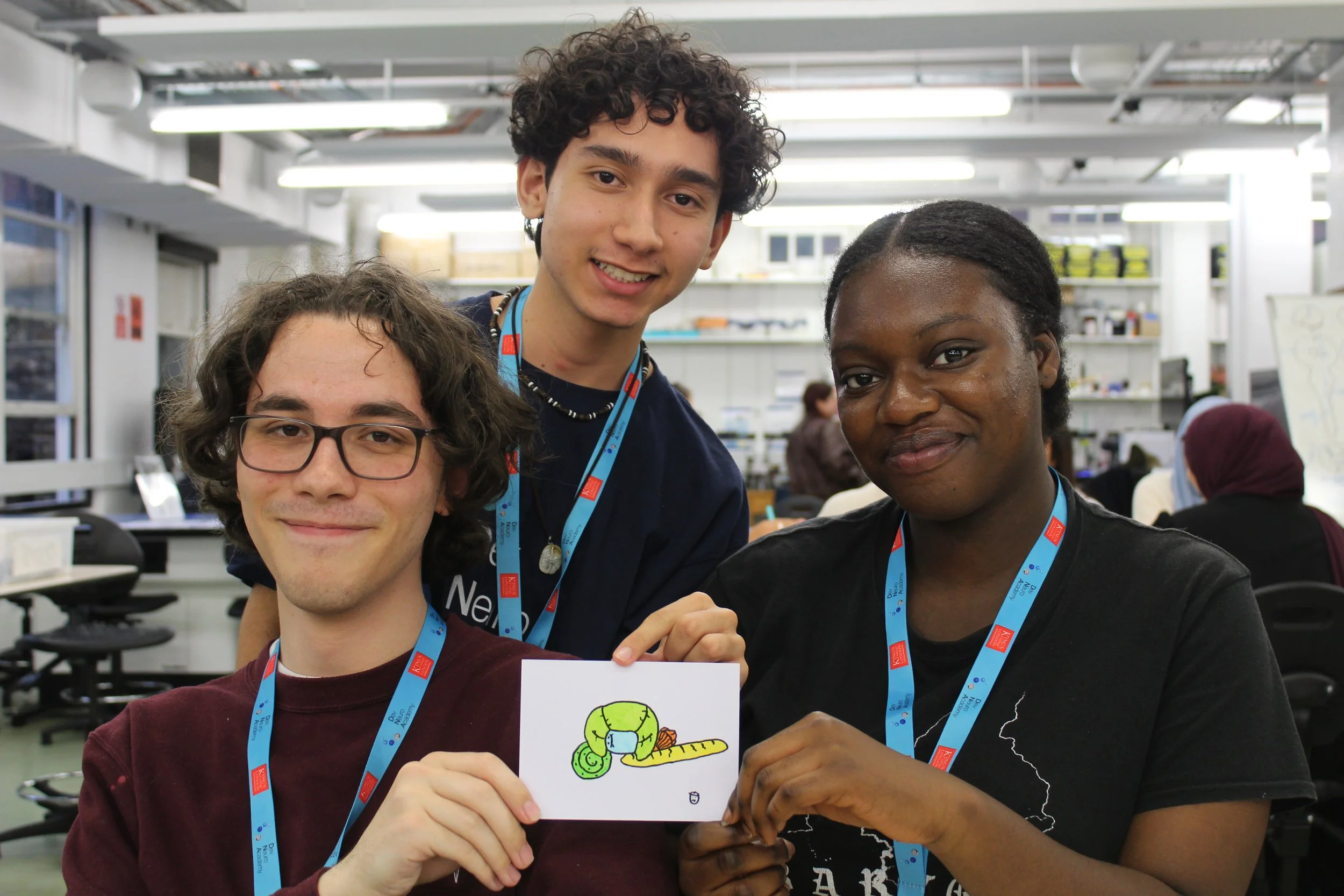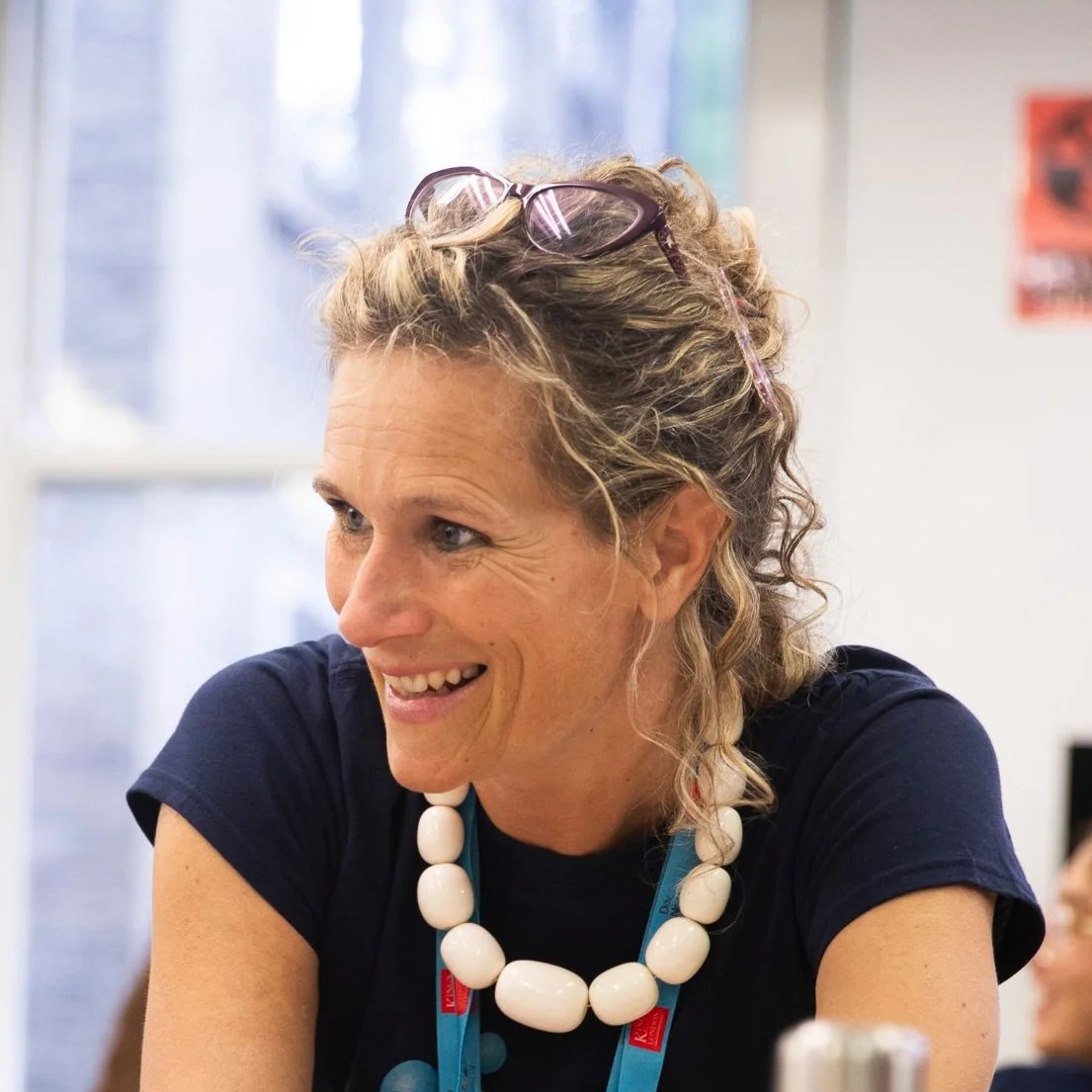Dev Neuro Academy (DNA) is an award-winning widening participation programme for Year 12 students hosted by the Medical Research Council Centre for Neurodevelopmental Disorders (MRC CNDD) and the Centre for Developmental Neurobiology (CDN) at King’s College London, within the Institute of Psychiatry, Psychology & Neuroscience.
The DNA programme, which has been led by Dr Leigh Wilson (Public Engagement Manager, Centre for Developmental Neurobiology and the Medical Research Council Centre for Neurodevelopmental Disorders, Kings College London) since 2021, is an immersive summer school which combines practical research experience in neuroscience laboratories, neuroanatomy demonstrations, exploration of university research and teaching facilities with creative, skill-based workshops. Students also devise and deliver a group project on a broad neuroscience topic, with guidance from a range of multi-career-level tutors. Importantly, students explore the creativity of science through artist-led workshops and science communication sessions. The programme emphasises interdisciplinary approaches, exploring scientific imagination and the unspoken virtues of good scientific practice, such as care, collaboration and communication, that can often be relegated in the content-heavy learning associated with A-Levels.
DNA week culminates in a celebration of student achievements, where individual and groups prizes are awarded for outstanding performance. A key part of the programme is the creation of a sustainable, positive supportive peer group through which Summer School students are invited to transition to the DNA Champions programme as Year 13 students. This provides the Champions with additional opportunities to connect with each other and King's staff and engage in further learning and skills-based activities, including additional research lab experience sessions. Support is also provided for UCAS applications as they apply to university and Champions are invited to be part of and help facilitate the following year of the DNA programme.
DNA creates a sense of care, pride, and belonging to this special community, with alumni staying in touch years beyond the programme and into their onward journeys.
“I’m passionate about Dev Neuro Academy because it offers a genuinely inclusive and unique space where participants, researchers, undergraduates, creatives, and the wider community can come together to explore neuroscience and engage with diverse ways of thinking and being—all within a safe and welcoming environment.”
Dr Leigh Wilson, Dev Neuro Academy Programme Director
As a Widening Participation (WP) programme, Dev Neuro Academy team members work closely in partnership with the King’s Social Mobility and Widening Participation Team to target under-represented and disadvantaged students from the London area. In recognition that some students will have to overcome more challenges to achieve their educational aspirations, DNA students are selected on the following WP indicators:
Schooling (non-selective state schools only and WP target schools)
Postcode (indicator to identify applications from London areas of deprivation and low progress onto higher education)
Ethnicity (Black, Asian, Gypsy, Roma, Traveller, and Latinx students)
Family experience (free school meals, pupil premium, first-generation to higher education)
Priority groups (care-experienced, forced migrant, estranged, young carer)
Through Dev Neuro Academy, we aim to inspire interest in neuroscience research and de-mystify neuroscience careers, expose students to the university environment, increase confidence in the higher education setting, and support university applications, introduce the field of science communication and increase awareness of societal and ethical issues facing neuroscience research, invite exploration of creativity and interdisciplinarity within science, provide undergraduate interns and researchers with an opportunity to build confidence in communication and collaboration, and create a community of supportive peers and mentors through the growing Dev Neuro Academy network.





